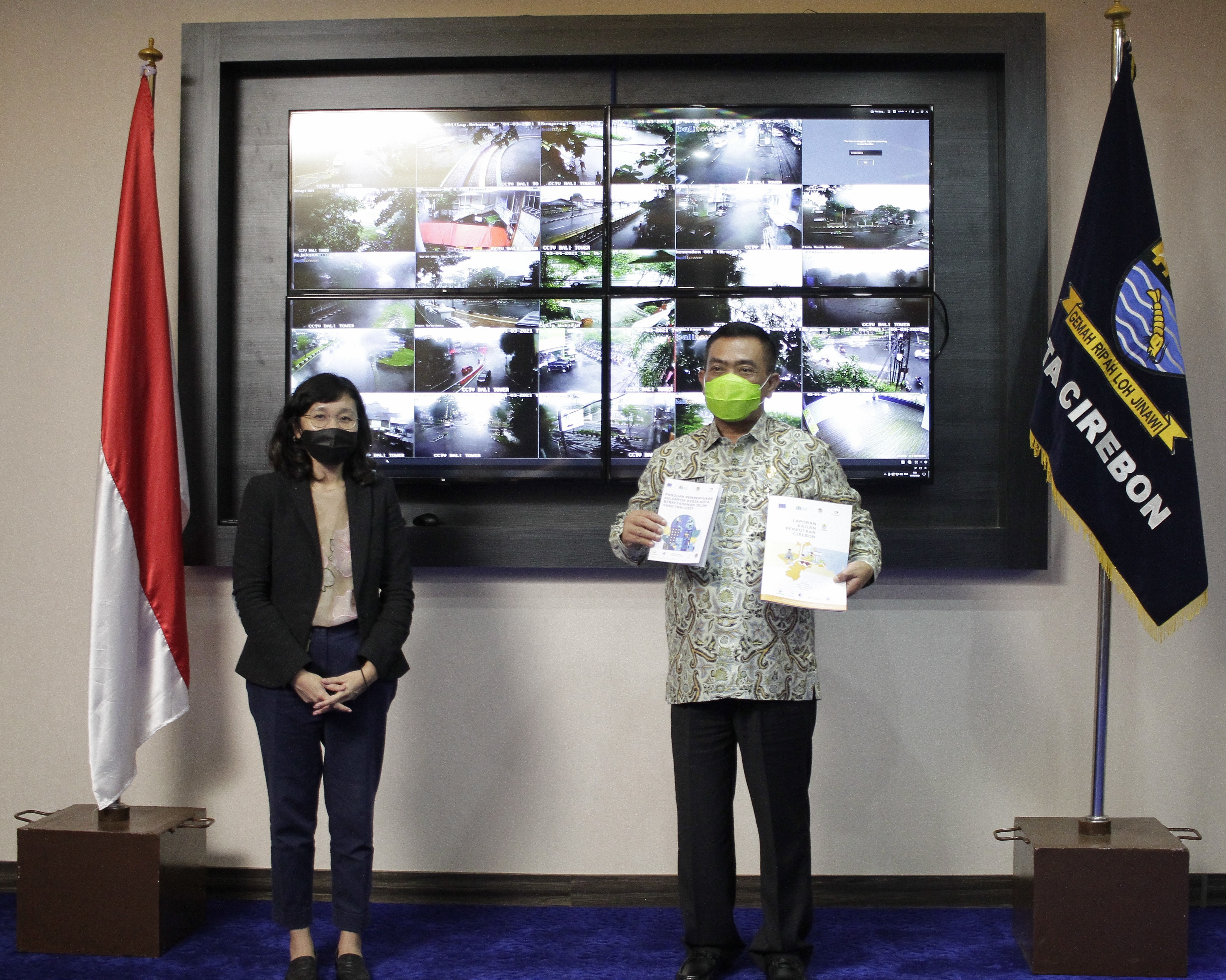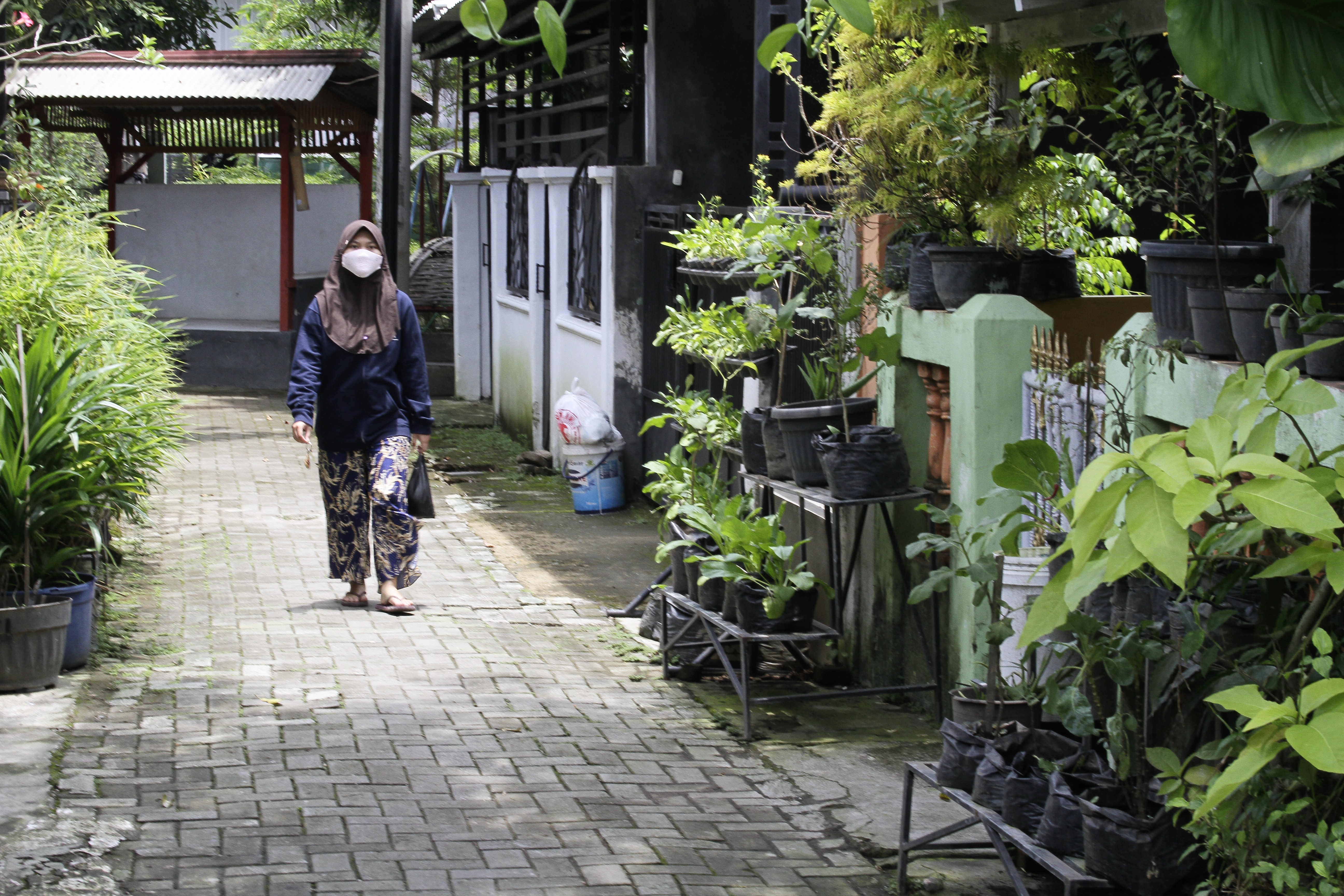Climate governance is at the heart of climate action. In Cirebon City of West Java, Mayor Drs. H Nashrudin Azis, SH reaffirmed his commitment to tackling climate change through the promotion of collaborative and community-based sustainable waste management efforts.
“We are proud to be selected as one of ten pilot cities. This motivates us to tackle one of the most long-standing and pressing problems in Cirebon, which is waste management,” Mayor Nashrudin said at the Mayor’s Office in Cirebon, on Thursday (4/3). On this occasion, the Mayor also received the Urban Analysis Report from CRIC. One of the recommendations stated in the Report urges Cirebon to transition towards sustainable waste management.
Urban Analysis Report Handover to the Cirebon City Mayor at the Mayor's Office, Cirebon, Thursday, March 4, 2021
Cirebon, the Mayor said, faces two main challenges when it comes to waste management. First, the city’s landfill, TPA Kopiluhur, will reach capacity in three years. Second, most people in the communities don’t recycle their waste, consequently creating more waste to be transported to the landfill.
Waste prevention can help minimise the impact of climate change through the reduction of GHG emissions. In Cirebon, waste is the main contributor of GHG emissions by emitting 28,270 tons of CO2 in 2014 (SIGN SMART, Ministry of Environment and Forestry). Organic waste made up the largest proportion of collected waste with an amount of 50.95%.
The Mayor further stated that the city needs assistance in the forms of approach, technology and other solutions to tackle this waste problem, in which CRIC can fill the gap. He emphasised the need to improve waste management efforts starting at a household level to reduce, reuse and recycle waste. “We are looking for solutions to make sure that waste can be recycled and reused for economic and environmental purposes,” he said.
Circularity and collaboration
To fill the waste management gap in Cirebon, CRIC has promoted the circularity approach by treating a waste problem with the lens of the life cycle. The life cycle thinking aims to assess resources consumed and emissions generated throughout all stages of the product cycle, starting from the production, distribution, consumption until the disposal of waste. With help from the European partner ACR+, CRIC will develop a waste management tool to help cities shift into more sustainable waste management.
Climate Village (Proklim) in Cirebon, a community-based climate change mitigation & adaptation action.
In addition to the circularity approach, CRIC also promotes the importance of multi-stakeholder collaboration when it comes to waste management. Cirebon has established a City Working Group consists of government, community, NGO and private sector representatives. The Working Group serves as an agent of change to advocate for climate-proof policies and programmes in the city.
The Head of Cirebon Development Planning Agency who is also a member of the Working Group Iing Daiman, said on Thursday (4/3) at his office, that the government can not work alone to solve the waste problem in Cirebon. “We can not work in silos to tackle a waste problem. That is why we engage with the private sector and we work with communities because only with collaboration, Cirebon can be waste-free,” he said.
There is already a community-based programme in place, such as Program Kampung Iklim/Proklim (Climate Village Programme) initiated by the national government. In Proklim, local communities are mobilised to take climate change mitigation and adaptation actions through various activities, one of which is sustainable waste management. At the community level, waste is sorted, recycled and repurposed, thus reducing the volume of waste being transported to the landfill. Cirebon only has one neighbourhood (Rukun Warga) implementing Proklim at the moment. It is expected that the good practice from this neighbourhood is replicated in other neighbourhoods in the city.



